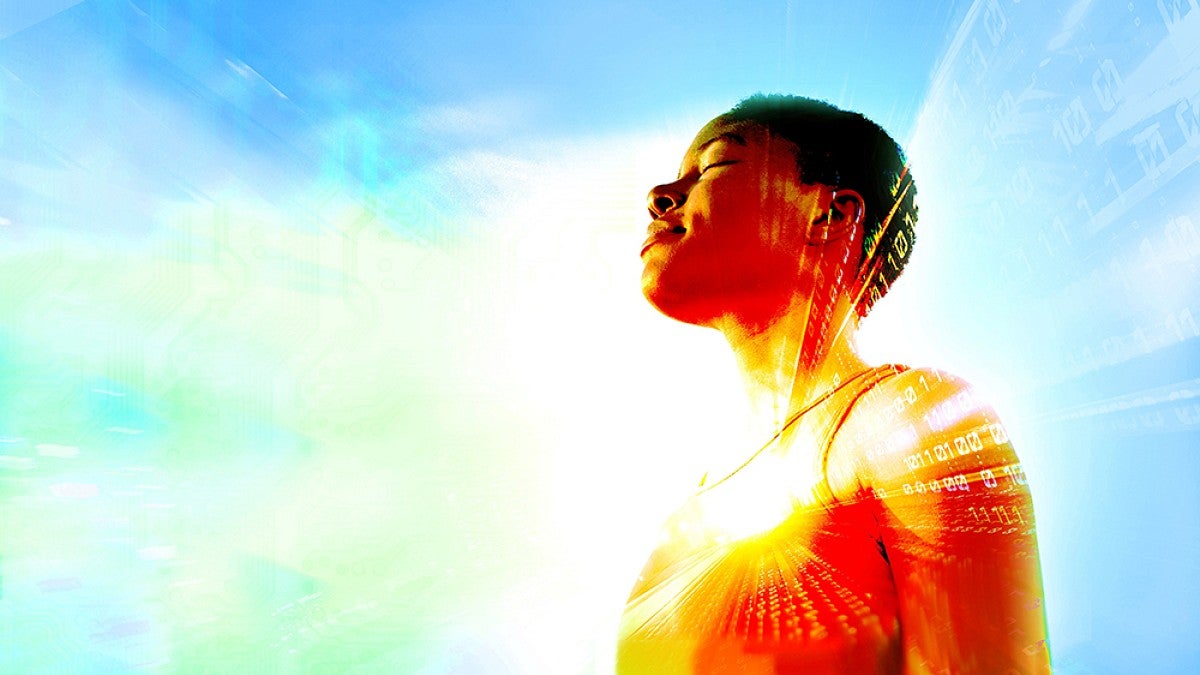It’s no secret kids and young adults are struggling. Rates of childhood mental health concerns and suicide rose steadily between 2010 and 2020 and by 2018 suicide was the second leading cause of death for youth ages 10-24. The pandemic intensified the crisis, leading to U.S. Surgeon General Vivek Murthy’s declaration in 2021 that youth mental health is one of the most pressing issues of our time.
In response, University of Oregon researchers are asking a novel question that could pay big dividends for kids and young adults: What role does just getting outside play in reducing stress?
The summer issue of Oregon Quarterly, available now, features a study of adolescents by Evergreen professors Liz Budd and Nichole Kelly of the College of Education that is the first to collect individualized data on adolescents’ time outdoors and in nature. Using the smartphone app NatureDose, developed by the College of Arts and Sciences’ Chris Minson, the Kenneth and Kenda Singer Professor in Human Physiology, researchers are tracking a week in the life of hundreds of Eugene-area adolescents, measuring stress levels, physical activity, sleep, time on phones — and time spent outdoors and in nature.
The new OQ, looking at ways to “Live Life Better,” showcases a collaboration that unites athletics, research, technology, data and human performance. Jordan Troester, director of performance and sports science for UO Athletics, is working with faculty members to develop exciting internship opportunities in sports science that incorporate state-of-the-art motion-capture technology and access to teams including Oregon baseball.
“Applied sports science programs that offer the knowledge and skills to work in team sports … just don’t exist (in the U.S.),” Troester said. “We’ve identified an opportunity for the University of Oregon (to) build a revolutionary academic and professional development model.”
Also from the wide world of sports: OQ’s retelling of a classic 1999 triple-overtime matchup between the UO and University of Southern California at Autzen Stadium. It’s a perfect setup for the coming season and perhaps the last regularly scheduled Ducks-Trojans game in Eugene, as USC will leave the Pac-12 next year.
The summer edition of the university magazine features commentary by Laura Lee McIntyre, dean of the College of Education and the Castle-McIntosh-Knight Professor of Education, on the college’s role in supporting schools to improve student well-being. Also, law professor Michael Fakhri, United Nations special rapporteur on the right to food, is profiled for his work on food policy that pushes the U.N.’s agenda.
The issue also follows students in the product design program in the College of Design in their effort to create gear that better serves clients in a horse-centered therapy program. And if you just want to improve your mood, try six tips to kick the blues from Ruth Ellingsen, a clinical assistant professor in the College of Arts and Sciences’ Department of Psychology.
Last but not least, check out workout tips from former Ducks defensive end Devan Long, a 2006 political science grad, or, more precisely, Thorfinn, the Viking warrior character he plays on the CBS show “Ghosts.” If these “Thorfinnisms” don’t make you strong as a Scandinavian seafarer, they’ll at least put a smile on your face.


